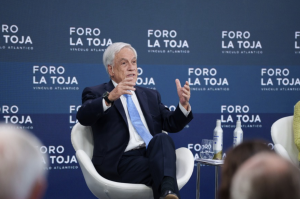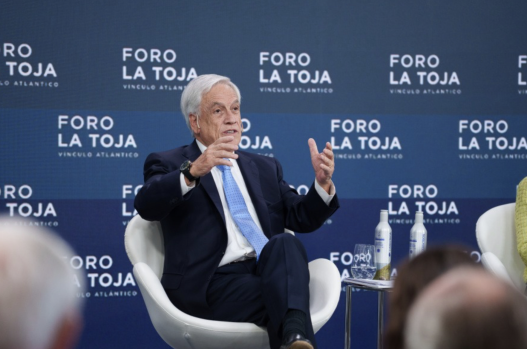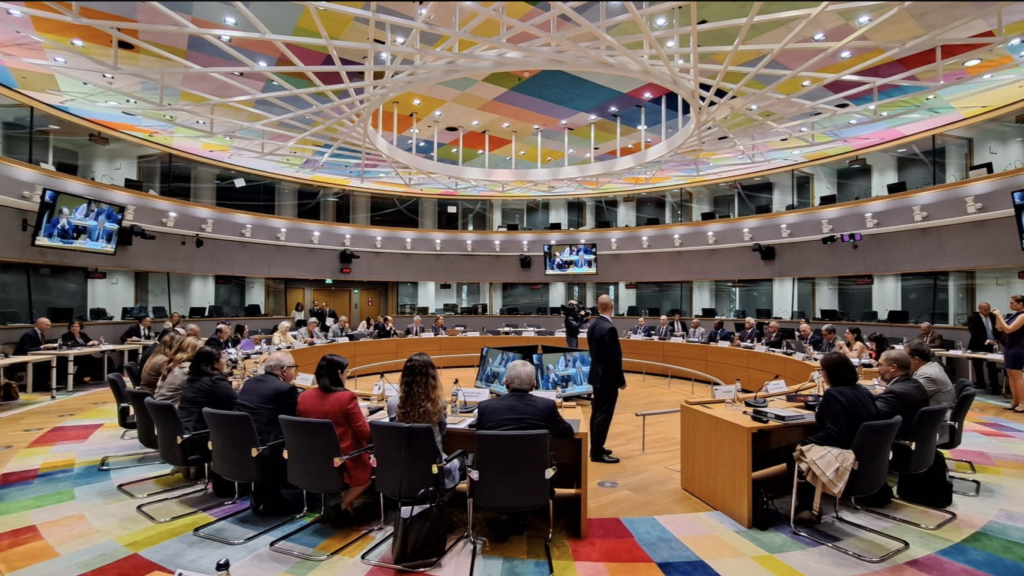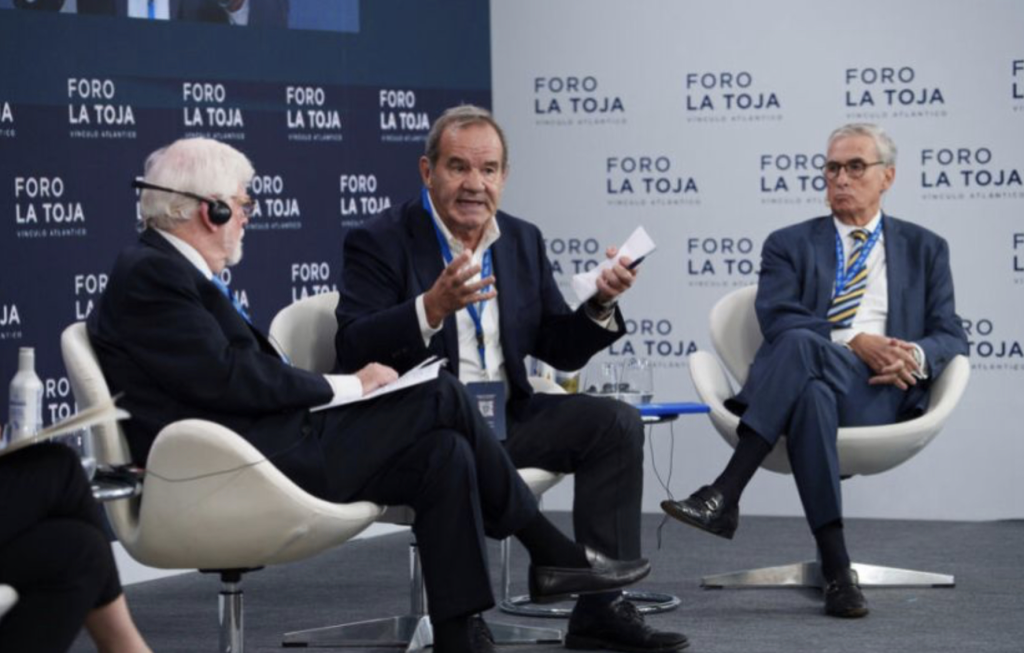
IMPROVING EDUCATION, DEMOCRACY AND THE QUALITY OF POLITICS, THE WAY TO STRAIGHTEN OUT GLOBAL GOVERNANCE, SAYS PIÑERA
For the former president of Chile, Sebastián Piñera, humanity has the greatest problems in its history, but also the most powerful tools to solve them. Why, then, has it not been possible to resolve them? The answer lies in the shortcomings of global governance.
On the second day of presentations at the V Forum La Toja – Vínculo Atlántico, Piñera addressed the issue of planetary governance. Former Spanish President Mariano Rajoy also participated in the panel.
What do they mean by ‘global governance’? As Piñera explained, this is the international order that was established at the end of World War II, clearly with the United States at the forefront. A leadership that was strengthened with the collapse of the Soviet Union. However, new global players have emerged, especially China, which have modified this hegemony.
The global governance we knew, which revolved around institutions such as the UN or the World Bank, all based in the United States, has lost weight and influence. Such governance, Piñera said, “does not come close to solving the world’s serious problems.”
He wondered, for example, what world governance has done to avoid wars, such as the one between Russia and Ukraine. Or in the face of the climate collapse that we are getting closer and closer to. “The most recent climate summit organized by the UN was not attended by the United States or China,” the main emitters of greenhouse gases, the former president pointed out.
Nor did he do much about the Covid-19 pandemic. Instead of leading a coordinated solution for the world, China and the United States clashed. “In the pandemic there was a great triumph of science and a great defeat of politics,” Piñera concluded.
World governance has also failed to protect multilateralism and global trade. In this regard, he stressed that the WTO has not even succeeded in setting up the panel to resolve disputes.
And in the face of such a complex situation on the planet as mass migration – which already involves 300 million people – global governance has also failed to coordinate and plan to better manage this movement of human beings, which will increase due to climate change, forcing people to relocate.
DEMOCRACY AND ARTIFICIAL INTELLIGENCE
Piñera and Rajoy agreed that the solution to the world’s problems does not lie in replacing democracy with another form of government.
They considered it to be a model that has proven superior to others. For Piñera, “it is a model with three well-known pillars: liberal democracy, free market economy and social inclusion, to which a fourth is now added: sustainability”.
In addition, Piñera considered that humanity has a powerful tool to face global challenges: Artificial Intelligence.
In this regard, he said: “Humanity has accumulated a large amount of data and has developed systems with an enormous storage capacity for this data. Added to that is an enormous capacity for processing and autonomous learning based on that data. This is Artificial Intelligence, it is something we have never had, which must be well used, especially when we have quantum computing in operation, which will multiply these computing capabilities, which will further change the way of doing things”.
EDUCATION FOR THE NEW WORLD
It is not only computers that must improve the ability to learn. Humans too. To explain this, Piñera made this reflection: “Children in today’s schools will work in jobs that do not yet exist, using technology that has not yet been invented to cover needs that we cannot imagine today. Are we preparing them for that world? Today we teach them to memorize, but we must teach them to learn”.
ATTENTION TO RISKS
The great development of computer systems, of Artificial Intelligence, is based on the handling of large amounts of data. Piñera called attention to the fact that there are three or four companies that dominate all this information and are not regulated. He pointed out that “in Europe they are following a model of regulation through laws, in the United States it is through self-regulation, in China there is a communist party. Imagine what it means to have control of all our information, they know everything about us. There is a gigantic risk, and who controls the proper use of this information?
IMPROVING THE QUALITY OF POLICY
How can we best meet these challenges, Piñera was asked. His answer was to improve the quality of politics globally and nationally. “Everyone believes that all politicians are corrupt, inept and incompetent, and that has become a self-fulfilling prophecy. Because, who are in that group, those who fit that definition. So, we have to improve the quality of policy. That is the beginning of improving governance globally and nationally,” Piñera said.
For him, finally, there is one thing missing and one thing left over. Countries lack “a big, noble project in which everyone feels they have a place to contribute and to benefit from progress. Countries have lost this idea of a shared mission and, rather, there are fratricidal struggles among the people. And what’s left over? “I think the state has penetrated too much. I think we have to unleash the forces of freedom, creativity, imagination, innovation, education – which is the true renewable resource – and not allow the state to continue to suffocate with regulations, bureaucracy and excessive taxes the capacity to create, to innovate, to invent.”
This article is free to use. If you plan to use it, please cite EditoRed as the source.



